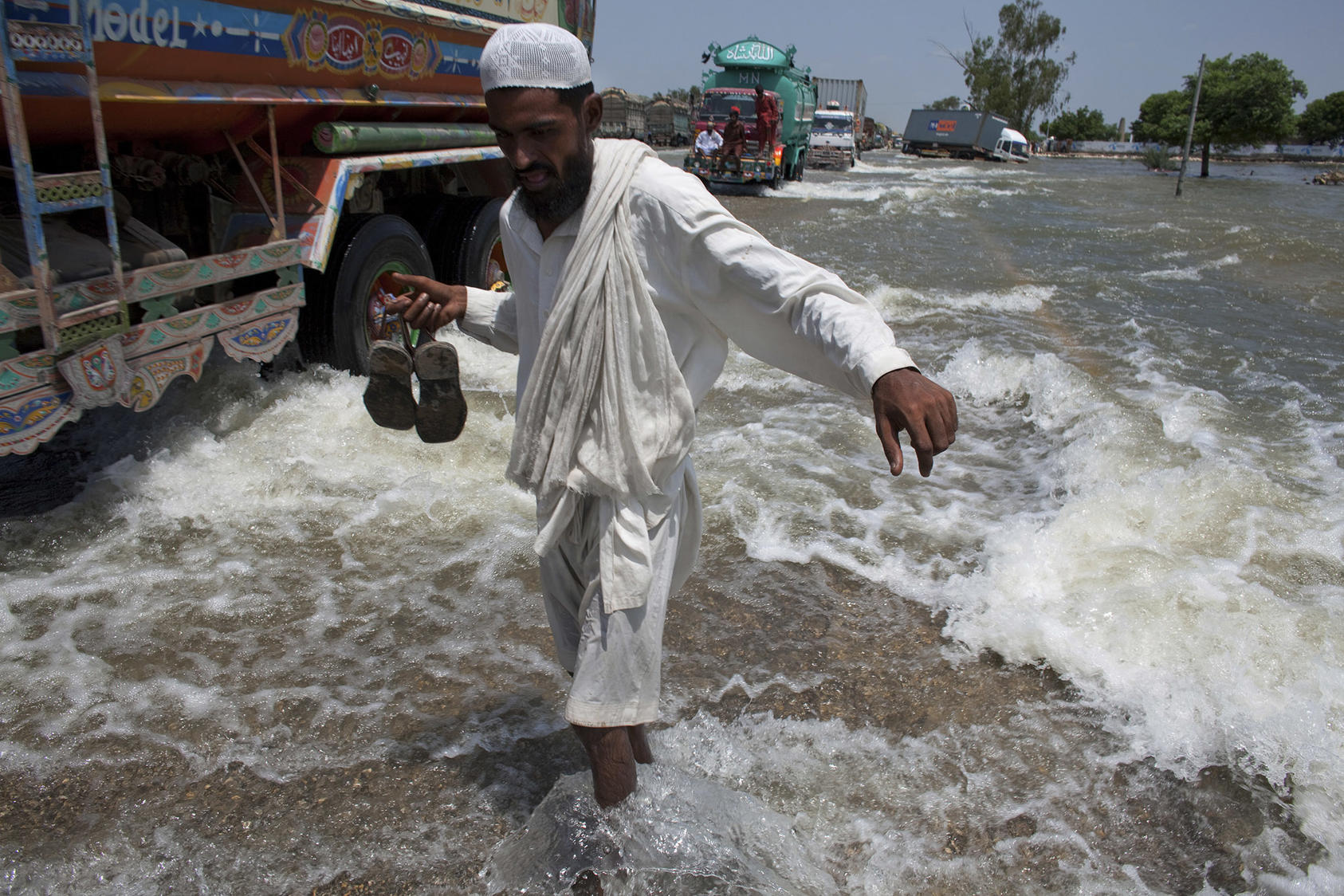Twitter Space: Pakistan Under Water, Under Siege
The Impacts of Recent Flooding on Peace and Stability
Long considered vulnerable to climate change, Pakistan is in the middle of a severe climate-induced disaster. Horrific flooding has left one-third of the country underwater, killing more than 1,200 people and impacting 33 million more. These grim numbers only stand to increase in the coming days and weeks, as the crisis is far from over and rain continues to fall in parts of the country. Adding to the Pakistan’s woes are continued political instability, record inflation, food insecurity and the threat of disease in the makeshift relief camps that now house millions of newly displaced Pakistanis.

On September 8, USIP hosted a Twitter Space discussion on the causes and impact of these catastrophic floods on Pakistan’s already fragile political and economic situation. The conversation also looked at what role the international community can play in helping Pakistan recover from this humanitarian crisis and better prepare for future disasters.
Note: This live Twitter Space was hosted on USIP’s Twitter account, @USIP. The recording of this discussion is available on this page as an episode of the “USIP Events” podcast.
Continue the conversation on Twitter using the #PakFloodsUSIP hashtag.
Speakers
Asfandyar Mir
Senior Expert, United States Institute of Peace
@asfandyarmir
Arifa Noor
Journalist & Anchor, Dawn
@arifanoor72
Jumaina Siddiqui
Senior Program Officer, South Asia, United States Institute of Peace
@jumainasiddiqui
Tamanna Salikuddin, moderator
Director, South Asia Programs, United States Institute of Peace
@tsalikuddin



